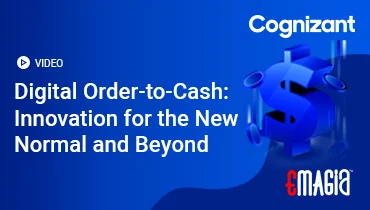In the realm of accounts receivable, invoice matching for cash application stands as a pivotal process. It ensures that incoming payments are accurately aligned with corresponding invoices, thereby maintaining financial accuracy and enhancing operational efficiency. This comprehensive guide delves into the intricacies of invoice matching, its significance, methodologies, challenges, and the transformative role of automation in modern financial operations.
Understanding Invoice Matching in Cash Application
What is Invoice Matching?
Invoice matching is the process of verifying that the details on an invoice correspond accurately with associated documents such as purchase orders (POs), goods receipt notes (GRNs), and inspection reports. This verification ensures that payments are made only for goods or services that were legitimately ordered and received.
The Role in Cash Application
In cash application, invoice matching plays a critical role by ensuring that incoming payments are correctly applied to outstanding invoices. This alignment is essential for maintaining accurate financial records, optimizing cash flow, and fostering strong supplier relationships.
Types of Invoice Matching
Two-Way Matching
This method involves comparing the invoice with the purchase order to confirm that the details, such as quantity and price, match.
Three-Way Matching
An extension of two-way matching, this process adds the goods receipt note to the verification, ensuring that the goods or services were received as ordered.
Four-Way Matching
This comprehensive approach includes the inspection report, verifying that the received goods meet the required quality standards in addition to matching the PO and GRN.
Importance of Invoice Matching
Preventing Overpayments and Fraud
By ensuring that payments are made only for verified goods and services, invoice matching helps prevent overpayments and reduces the risk of fraudulent transactions.
Enhancing Financial Accuracy
Accurate invoice matching ensures that financial records reflect true expenditures, which is vital for financial reporting and analysis.
Strengthening Supplier Relationships
Timely and accurate payments foster trust and reliability between businesses and their suppliers, leading to stronger partnerships.
Challenges in Manual Invoice Matching
Time-Consuming Processes
Manual matching requires significant time and effort, especially when dealing with large volumes of invoices, leading to inefficiencies.
Prone to Errors
Human errors in data entry and verification can result in mismatches, leading to payment delays or inaccuracies.
Limited Visibility
Manual processes often lack real-time tracking and reporting capabilities, making it difficult to monitor the status of invoices and payments effectively.
Automating Invoice Matching: A Game Changer
Leveraging Technology
Automation utilizes technologies like Optical Character Recognition (OCR) and Artificial Intelligence (AI) to extract and process data from invoices, POs, and GRNs, significantly reducing manual effort and errors.
Benefits of Automation
- Increased Efficiency: Automated systems process invoices faster, reducing the time from receipt to payment.
- Improved Accuracy: Automation minimizes human errors, ensuring more accurate matching and payment processing.
- Enhanced Visibility: Real-time tracking and reporting provide better insights into the status of invoices and cash flow.
- Cost Savings: Reducing manual labor and errors leads to significant cost reductions in the long term.
How Emagia Transforms Invoice Matching for Cash Application
Emagia offers an AI-powered solution that revolutionizes invoice matching in cash application processes.
Key Features
- AI-Powered Data Recognition: Emagia’s system accurately extracts and categorizes invoice data, facilitating seamless matching.
- Seamless ERP Integration: The solution integrates effortlessly with major ERP systems, ensuring smooth data flow and consistency.
- Automated Workflows: Emagia automates the entire invoice processing workflow, from data extraction to payment approval.
- Real-Time Analytics: The platform provides insightful dashboards and reports, enabling better financial decision-making.
- Fraud Detection: Advanced algorithms detect and prevent fraudulent activities, safeguarding financial assets.
Benefits
- Efficiency: Streamlines the invoice matching process, reducing processing time and manual intervention.
- Accuracy: Enhances the precision of invoice matching, minimizing errors and discrepancies.
- Compliance: Ensures adherence to financial regulations and standards through comprehensive audit trails.
- Scalability: Adapts to growing business needs, handling increasing volumes of invoices without compromising performance.
Frequently Asked Questions
What is invoice matching in cash application?
Invoice matching in cash application refers to the process of aligning incoming payments with the corresponding invoices to ensure accurate financial records and efficient cash flow management.
Why is invoice matching important?
It prevents overpayments, reduces fraud risk, ensures financial accuracy, and strengthens supplier relationships by facilitating timely and accurate payments.
What are the types of invoice matching?
The primary types are two-way matching (invoice and PO), three-way matching (invoice, PO, and GRN), and four-way matching (invoice, PO, GRN, and inspection report).
How does automation improve invoice matching?
Automation enhances efficiency, accuracy, and visibility in the invoice matching process by utilizing technologies like OCR and AI, reducing manual effort and errors.
Can Emagia integrate with existing ERP systems?
Yes, Emagia seamlessly integrates with major ERP systems, ensuring consistent and efficient data flow across financial operations.
By embracing automated solutions like Emagia, businesses can transform their invoice matching processes, leading to improved financial accuracy, efficiency, and overall operational excellence.



